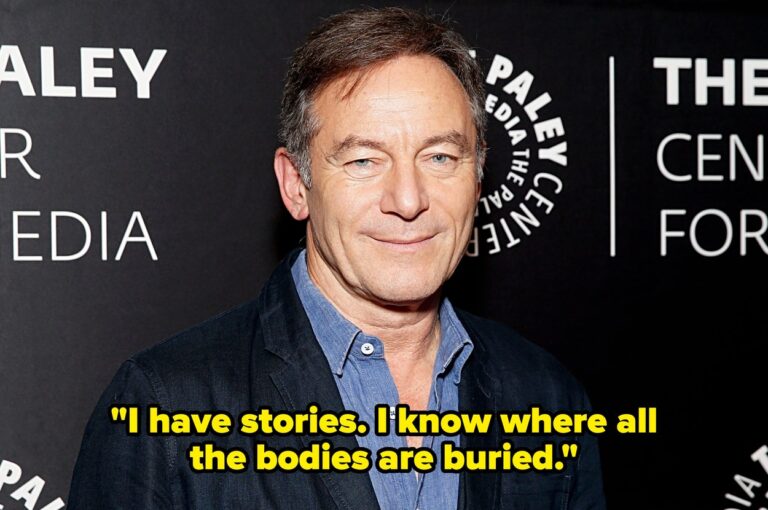
Now that Sunrise on the Reaping has been out a bit over a week, there is plenty of speculation on the next steps we may see in the Hunger Games franchise. The film deal is already cemented, and speculation is hot regarding casting and other decisions. But, readers and investors alike are already asking “will she or won’t she” regarding additional books. Earlier this week, our esteemed headmaster, John Granger, posited seven excellent reasons why Collins may be finished with her Panem books. While I am not generally argumentative, I am willing to consider the possibility that Collins still has more to say about her created world and that there may yet be more books. Join me after the jump for seven reasons that Sunrise of the Reaping may not actually be Collins’s last gift to the hopeful tributes of her readership. Then, you can decide which of our arguments has the most merit!
film deal is already cemented, and speculation is hot regarding casting and other decisions. But, readers and investors alike are already asking “will she or won’t she” regarding additional books. Earlier this week, our esteemed headmaster, John Granger, posited seven excellent reasons why Collins may be finished with her Panem books. While I am not generally argumentative, I am willing to consider the possibility that Collins still has more to say about her created world and that there may yet be more books. Join me after the jump for seven reasons that Sunrise of the Reaping may not actually be Collins’s last gift to the hopeful tributes of her readership. Then, you can decide which of our arguments has the most merit!
1. Three is the Magic Number
Probably the most compelling reason that Collins may not be finished is a numerical one. From the beginning of the original trilogy, she demonstrated a ridiculously careful structure, with very intentional elements tied directly to her overall symbolic scaffolding. The number three and its multiples work on an array of levels in the original trilogy, beginning with the mechanical arrangements of the texts: in each book, we have chapters broken into three sections of 9 chapters each. Other threes abound: the three-finger salute, the triptych structure of the Katniss plant, the number of arrows Katniss needs to set off her apples-to-explosives plot to destroy the Career supplies, the number of people in Katniss’s household at the beginning of the trilogy and the number of surviving District 12 Victors at the end. Those are just a few, but it is abundantly clear, even to less-than observant readers, that three is the number when it comes to the Hunger Games. One of the most frustrating aspects of the film adaptations was the decision to split Mockingjay, giving us four installments instead of three. Shortly after the publication of Mockingjay, students and others kept asking me if Collins would write another book in the series. I told them all that no, she would not write a fourth book, but she might write three more. So, now that Collins has done two prequels, it only makes sense to expect a third prequel to complete the set of three. She didn’t use the same internal number structure for Ballad, which, as our villain origin, was told in third-person limited, not first-person like the trilogy and Sunrise. But she’s back to the multiples of three-chapter sequences in this new installment, so perhaps that is a hint that she will complete the set of three for the prequels as she did in the original trilogy. Finishing at five, though it does mirror Gregor, doesn’t match up with her structure in this world.
2. I Have Been Wrong Before
Even though I was convinced that Collins was done after the publication of Mockingjay, she surprised us with The Ballad of Songbirds and Snakes, which is both thought-provoking and an excellent novel. Sometimes readers, even careful ones, are, like Tributes in the arens, just trying to piece together the facts based on limited information. Clearly, Collins will do whatever she wants, regardless of what insightful readers think, so she may continue publishing a slew of these books. Despite her powerful symbolic threads and the fact that readers think they know all about the events of Sunrise before reading it, she is still capable of surprising us, so, even though the series does appear complete, she may yet stun us.
3. Unfinished Stories?
Sunrise on the Reaping allows us to see younger versions of characters we came to know in the original trilogy and to learn more about how they became the characters we meet later. Meeting Plutarch Heavensbee and Effie Trinket twenty-four years before Katniss and Peeta’s dual victory allows us to understand much more about them. Some of these wonderful characters, like Mags and Wiress, seemed to leave us far too soon in the trilogy. By going back in time, Collins can give us the chance to learn more about characters whose stories we would like to know better, although in some cases, we already know how they end. Another book would allow her to do the same for other characters, like Finnick, who don’t appear in Sunrise, or to learn even more about mysteries like the Trinket family scandal or Plutarch’s journey to rebellion, a mystery that John Granger agrees would be worth the price of another book.
4. Holes from the Snows
In some ways, the depredations of President Snow in Sunrise on the Reaping serve as a reminder of the kind of person he is, in case we might have forgotten after getting to know his charming younger self in The Ballad of Songbirds and Snakes. In some ways, Collins may be saying, “see, you really don’t want to spend any more time with this monster, right?” But there are other Snow family stories that remain unexplored. Many of us still wonder how Coriolanus’s young, affectionate cousin Tigris became the embittered, deformed resistance supporter of Mockingjay. That story could still be told, as could more about Snow’s wife and children. Does he poison them, too? How close is the missing story of the Snow family to the Roman history that is such an important story scaffold? There are still questions to answer, perhaps in an additional book.
5. Family History
One of the most wonderful pieces in Sunrise, for me, was getting to see Katniss’s father as a teenager. It seems we already know him, from her strong affection for and memories of him. That isn’t the care with some of the other fathers of the series. Haymitch describes Lenore Dove’s father as a mystery, and the same could be said of other Covey members. In the secret Covey family cemetery where Burdock takes Haymitch, the only graves we see are women’s graves. We also do not have the exact line from Lucy Gray Baird to Katniss, although there is certainly a family connection. Another book could fill in some of those family mysteries and connect some more of those family dots.
6. Other Times, other Places
With the two prequel books, Collins has proven she is able to move about the history of her created world at will. Ballad jumps to sixty-four years before The Hunger Games. Sunrise leaps forward forty years from Ballad and then jumps to after Mockingjay. With another book (or books), Collins could cover the Dark Days of the war or even explore the disasters and decisions that led to the transformation of North America to Panem. She could also jump around in space, answering questions about whether or not there are other human civilizations outside Panem and how they have been faring.
7. Are the Gamemakers Calling the Shots?
Although Collins has done a much better job than many other authors and celebrities at controlling her own narrative and preserving her own privacy, she is, like everyone else involved in this franchise, at least partly at the mercy of the Gamemakers in publishing and Hollywood. These same forces have coaxed actors out of retirement to perform in films completely against their better judgement and have gotten bands back on tour together after the members threatened that Hades would freeze over before a reunion happened. Those hesitant artists were all driven by the ugly truth of economics. While there are certainly good artistic reasons for Collins to either continue her work in Panem or to take her lovely prizes and go home, the cold hard truth of cold hard cash may compel her to continue giving the industry what it wants. It’s an industry that routinely ignores artistic unity and narrative arcs to force sequel after nonsensical sequel for franchises that really should be closed loops. Collins is smart, and she has done well to dodge much of the nonsense of the modern media world, but the very characters she creates, characters who find themselves at the mercy of media machinery and manipulation, demonstrate that she knows how this system works. Like a Victor on Tour or a Tribute in the arena, she may have no choice but to keep playing the game.
Of course, whether you feel my arguments or John’s are the most compelling, the only opinion that matters is Collins’s. It remains to be seen what she will do, but if she does make a definite decision, we’ll be eager to see how our reasons match up with hers! Now that she has covered her villain origin story and Haymitch’s tragic background, will she foil chronology and take us all the way back to the Dark Days or let the story stand? Will she fill in gaps or close up shop? It really is anyone’s guess, but perhaps Wyatt is out there among our readers, telling us where to place our bets.







